Commentary.
The decision of the Head of State, President Paul Biya to personally preside at the military funeral honours organised at the Military Headquarters Brigade (Yaounde), to pay homage to the four fallen soldiers who died in a helicopter crash at the little locality of Tchofo near Bogo in the Diamare Division of the Far North Region on January 22, was not by Presidential chance. First, as Commander-in-Chief of the Defence Forces, it was compelling for the President to pay his last respect for the four soldiers; Brigadier Kodji Jacob, Colonel Nkameni Alphonse, and Flying Officers Souloukna Ngrassou Basile, and Chinda Mu Tankam Brice; secondly, the soldiers died in full defence of the nation. And to testify the respect of the nation to the military that represents an important symbol of the State, President Biya posthumously raised the four military officials to higher ranks with Kodji becoming Major General, Nkameni Brigadier and Mu Takam and Ngrassou Flight Lieutenants.
Major General Kodji and his colleagues died arms in hand fighting the Islamist activist terrorist group, Boko Haram in outright defence of the Cameroon nation. This, of course, may appear so normal for those who continue to think they were simply fulfilling their duty as military men. It is important to underscore here that all military men are not the same. This happens in all professions. All journalists for instance are not the same. On the field one would find soldiers that are ready to sacrifice their last drop of blood to defend their country. On the same field, some will play the hide and seek avoiding to be sent on missions considered dangerous. In effect, what makes the military a symbol of the State is the fact that it is a force that is trained to support the interests of the State and some or all of its citizens.
The task of the military is usually defined as defence of the State and its citizens, and the prosecution of war against another State. The military may also have additional sanctioned and non-sanctioned functions within a society, including, the promotion of a political agenda, protecting corporate economic interests, internal population control, construction, emergency services, social ceremonies, and guarding important areas. It is all these attributes that make the armed forces different from others. On the basis of these, those who choose to be part of the profession understand they are in for a vocation and must be able to live up to the exigencies therein. A soldier must command respect because he is a symbol of the nation. The uniform he wears is nationhood and must be treated as such. Disrespect of the uniform is disrespect of the nation.
The Head of State in his speech at the Military Headquarters was very clear in underscoring the sacrifice made by Kodji in his role as commander of the Inter-military 4th Region and Nkameni as Commander of the 4th Gendarmerie Region, all who worked hard to ensure the securing of the northern border between Cameroon and Nigeria. The death of the four soldiers according to the President should not discourage the military in the fight against the terrorist group. Rather, it should serve as an encouragement and determination to continue in the struggle. In other words the bloodshed from the soldiers in defence of the nation must continue to yield palpable fruit for the country.
">
The decision of the Head of State, President Paul Biya to personally preside at the military funeral honours organised at the Military Headquarters Brigade (Yaounde), to pay homage to the four fallen soldiers who died in a helicopter crash at the little locality of Tchofo near Bogo in the Diamare Division of the Far North Region on January 22, was not by Presidential chance. First, as Commander-in-Chief of the Defence Forces, it was compelling for the President to pay his last respect for the four soldiers; Brigadier Kodji Jacob, Colonel Nkameni Alphonse, and Flying Officers Souloukna Ngrassou Basile, and Chinda Mu Tankam Brice; secondly, the soldiers died in full defence of the nation. And to testify the respect of the nation to the military that represents an important symbol of the State, President Biya posthumously raised the four military officials to higher ranks with Kodji becoming Major General, Nkameni Brigadier and Mu Takam and Ngrassou Flight Lieutenants.
Major General Kodji and his colleagues died arms in hand fighting the Islamist activist terrorist group, Boko Ha...
Cet article complet est réservé aux abonnés
Déjà abonné ? Identifiez-vous >
Accédez en illimité à Cameroon Tribune Digital à partir de 26250 FCFA
Je M'abonne1 minute suffit pour vous abonner à Cameroon Tribune Digital !
- Votre numéro spécial cameroon-tribune en version numérique
- Des encarts
- Des appels d'offres exclusives
- D'avant-première (accès 24h avant la publication)
- Des éditions consultables sur tous supports (smartphone, tablettes, PC)






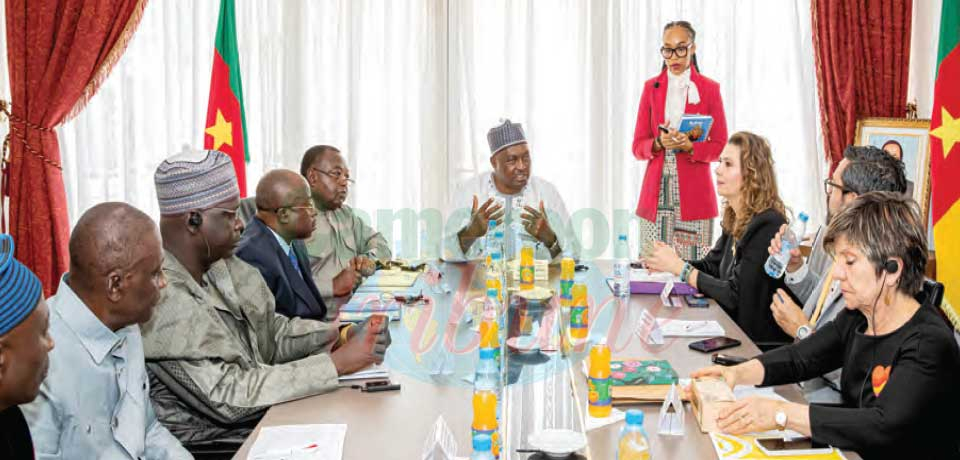
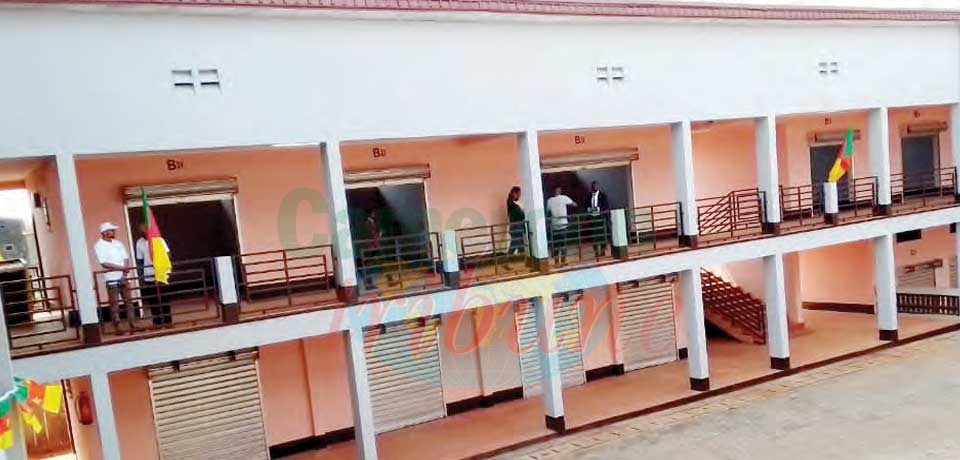
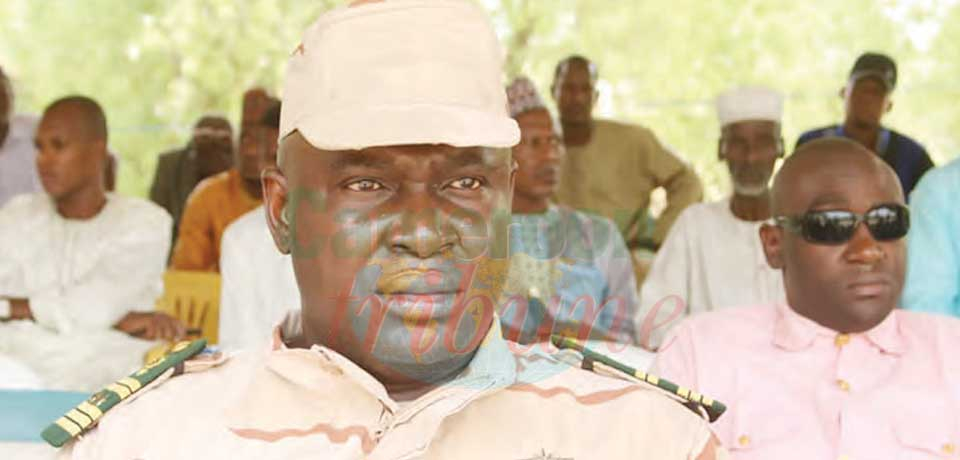
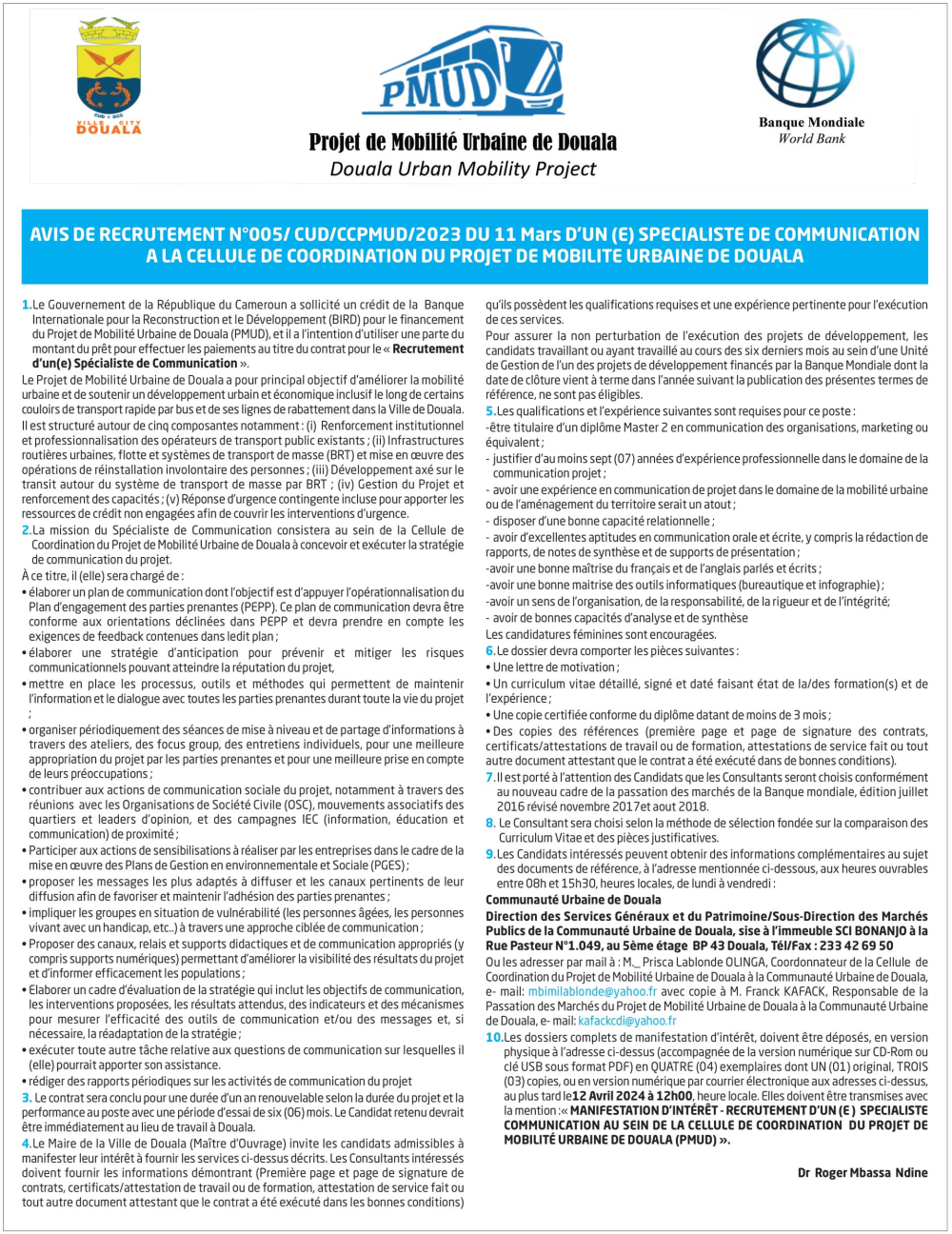
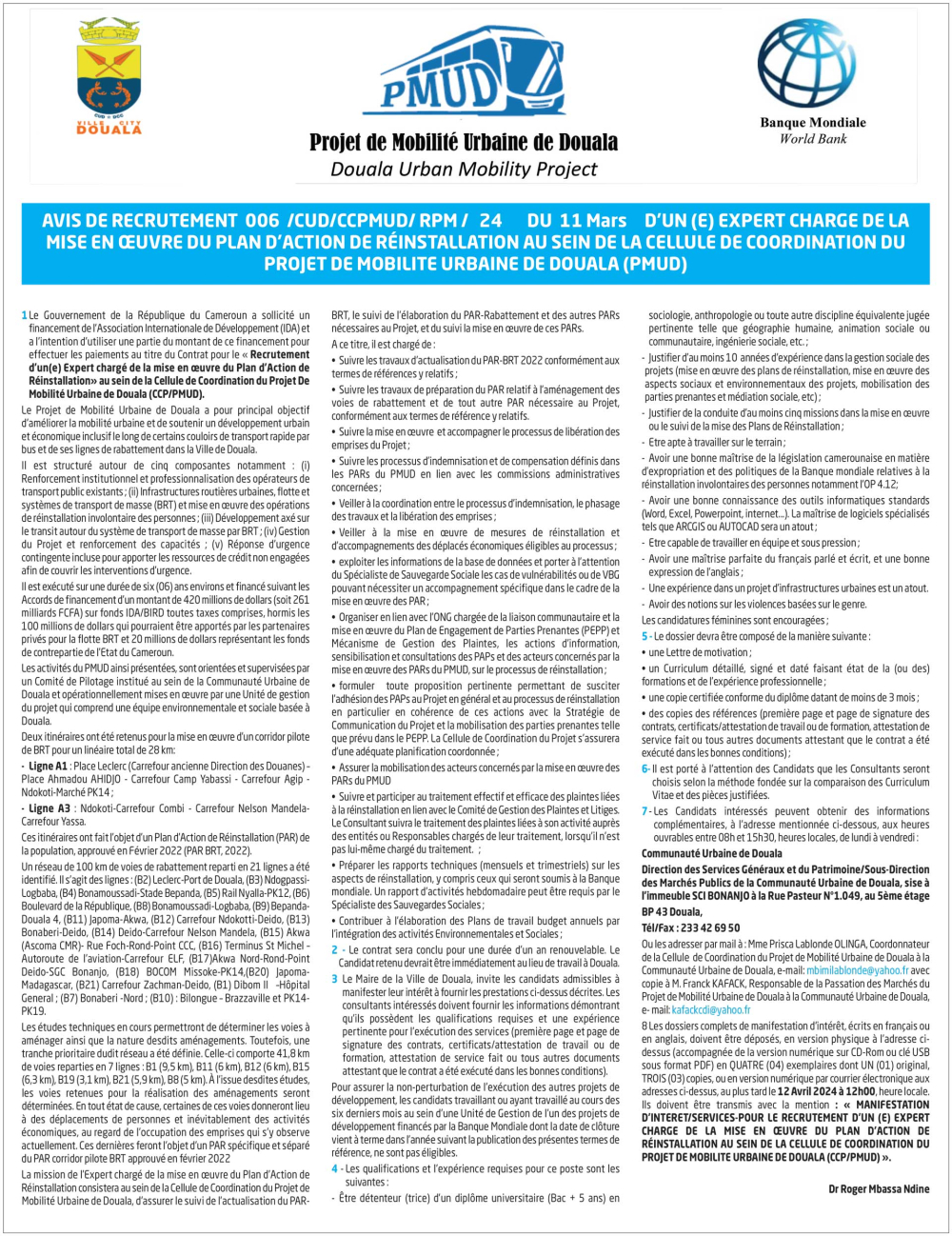
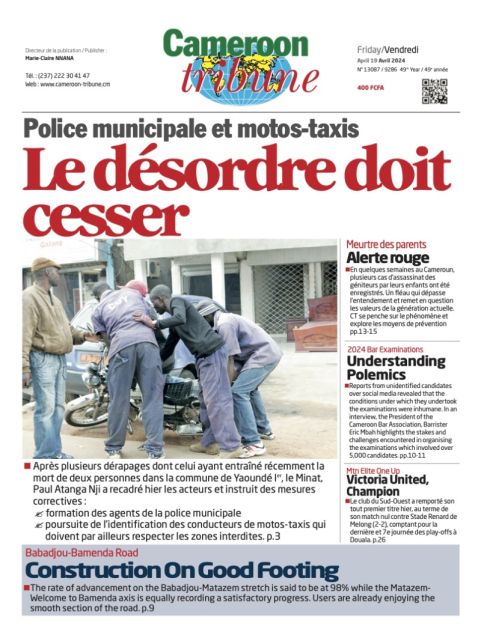




Commentaires